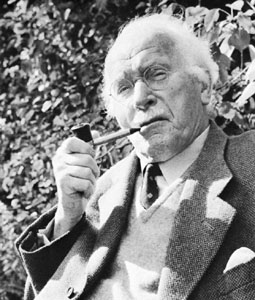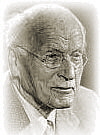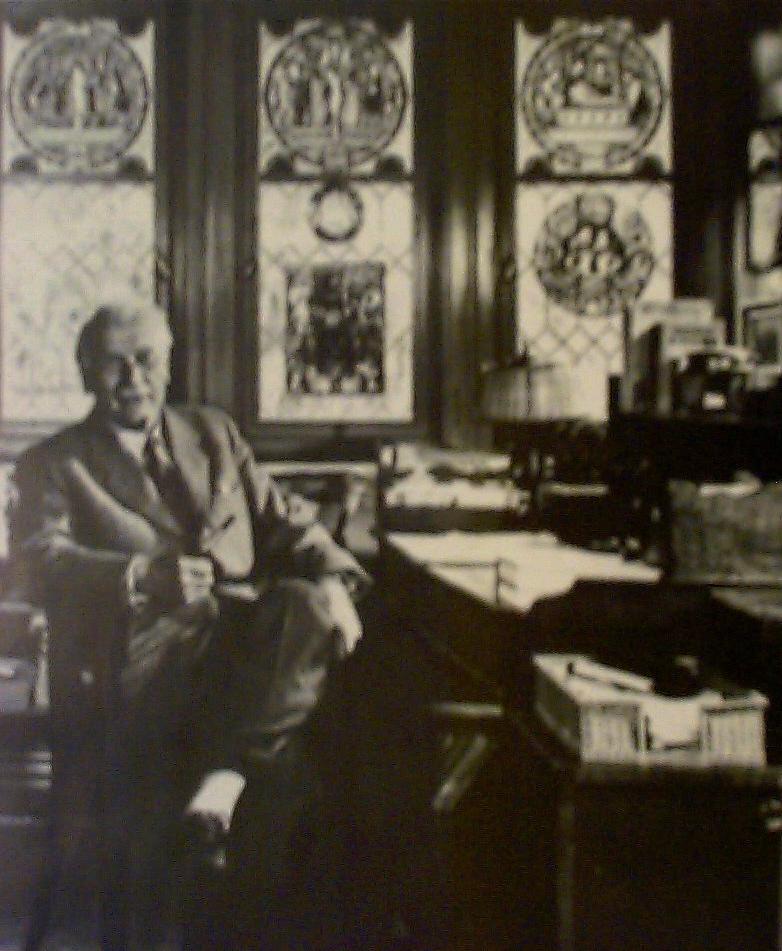![]()
Jung on Dreams
![]()
![]()

The dream is a little hidden door in the innermost and most secret recesses of the soul, opening into that cosmic night which was psyche long before there was any ego-consciousness, and which will remain psyche no matter how far our ego-consciousness extends.
~C.G. Jung, 45:304~
Dreams are impartial, spontaneous products of the unconscious psyche, outside the control of the will. They are pure nature; they show us the unvarnished, natural truth, and are there for fitted, as nothing else is, to give is back in attitude that accords with our basic human nature when our consciousness has strayed too far from its foundations and run into an impasse.
~C.G. Jung, 45:317~
In sleep, fantasy takes the form of dreams. But in waking life, too, we continue to dream beneath the threshold of consciousness, especially when under the influence of repressed or other unconsious complexes.
~C.G. Jung, 63:125~

A dream, like every element of the psychic structure, is a product of the total psyche. Hence may expect to find in dreams everything that has ever been of significance in the life of humanity. Just as a human life is not limited to this or that fundamental instinct, but builds itself up from a multipilicity of instincts, needs, desires, and physical and psychic conditions, etc, so the dream cannot be explained by this or that element in it, however beguilingly simple such an explanation they appear to be. We can be certain that it is incorrect, because no simple theory of instinct will ever be capable of grasping the human psyche, that mighty and mysterious thing, nor, consequently, its exponent, the dream. In order to do anything like justice to dreams, we need an interpretive equiptment that must be laboriously fitted together from all branches of humane sciences.
~C.G. Jung, 30-527~
A dream is nothing but a lucky idea that comes to us from the dark all-unifying world of the psyche. What would be more natural, when we have lost ourselvesamid the endless particulars and isolated details of the world's surface, than to knock at the door or dreams and inquire of them the bearings which would bring us closer to the basic facts of human existence?
~C.G. Jung, 45:305~

I have no theory about dreams, I do not know how dreams arise. And I am not at all sure that my way of handling dreams even deserves the name of a "method." I share all you prejudices against dream-interpretation as the quintessence of uncertainty and arbitrariness. On the other hand, I know that if we meditate on a dream sufficiently long and thoroughly, if we carry it around with us and turn it over and over, soemething almost always comes of it. This something is not of course a scientific result to be boasted about or rationalized; but it is an important practical hint which shows the patient what the unconscious is aiming at. Indeed, it ought not to matter to me whether the result of my musings on the dream in scientifically verbal or tenable, otherwise I am pursuing an ulterior- and therefore autoerotic- aim. I must content myself wholly with the fact that the result means something to my patient and sets his life in motion again. I may allow myself only one criterion for the result of my labors: does it work? as for my scientific hobby- my desire to know hwy it works- this I must resrerve for my spare time.
~C.G. Jung, 2:86~
Leni Iseley–Nancy Palmer Agency As against Freud's view that the drean is essentially a wish-fulfillment, I hold ... that the dream is a spontaneous self-portrayal, in symbolic form, of the actual situation in the unconcious.
~C.G. Jung, 30:505~
Dreams are as simple or as complicated as the dreamer is himself, only they are always a little bit ahead of the dreamer's conciousness. I do not understand my own dreams any better than any of you, for they are always somewhat beyond my grasp and I havee the same trouble with them as anyone who knows nothing about dream interepretation. Knowledge is no advantage when it is a matter of one's own dreams.
~C.G. Jung, 6:122~
Just as the body bears the traces of its phylogenic development, so also does the human mind. Hence there is nothing surprising about the possibility that the figurative language of dreams is a survival from an archaic mode of thought.
~C.G. Jung, 30:475~
Lack of conscious understanding does not mean that the dream has no effect at all. Even civilized man can occasionally observe that a dream which he cannot remember can slightly alter his mood for better or worse. Dreams can be "understood" to a certain extent in a subliminal way, and that is mostly how they work.
~C.G. Jung 8:52~